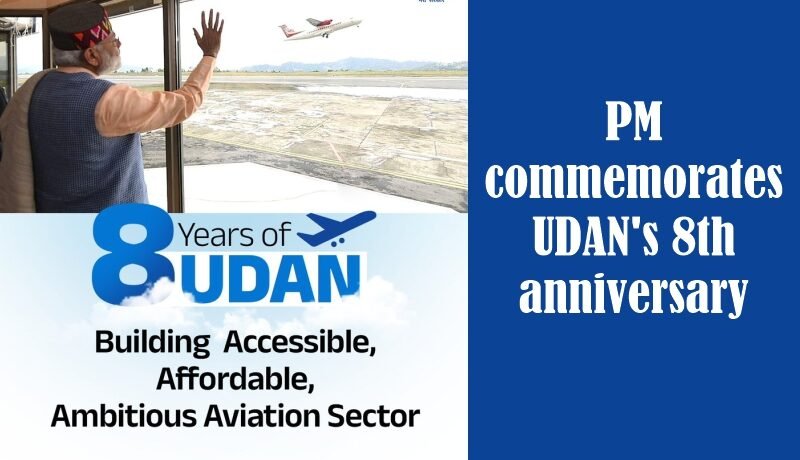UDAN’s 8th Anniversary: A Transformative Journey in Indian Aviation
Introduction to UDAN
The UDAN (Ude Desh ka Aam Nagrik) scheme, launched in 2016, has celebrated its 8th anniversary, marking a significant milestone in the evolution of Indian aviation. The initiative was aimed at making air travel affordable and accessible to the common man, particularly in underserved and remote regions of the country. Over the years, UDAN has transformed the aviation landscape, fostering connectivity and enhancing regional development.
Impact on Regional Connectivity
Since its inception, the UDAN scheme has successfully connected over 400 underserved airports, greatly improving regional air travel. This initiative has not only reduced travel times but has also made air travel a viable option for millions of people. The number of routes has increased significantly, with the scheme supporting the operation of over 1,000 routes across India. This has played a crucial role in promoting tourism and boosting local economies in remote areas.
Economic Benefits and Growth
The economic impact of UDAN extends beyond aviation. The scheme has created numerous job opportunities in the aviation sector and related industries, contributing to overall economic growth. By facilitating easier access to air travel, businesses can operate more efficiently, leading to increased investment and development in various regions. The government’s efforts to promote UDAN are evident in the substantial increase in passenger traffic, which has seen a steady rise since the scheme’s launch.
Future Prospects and Challenges
As UDAN marks its 8th anniversary, it aims to further expand its reach and improve services. The government is committed to addressing challenges such as infrastructure development, service quality, and sustainability in the aviation sector. Future initiatives will focus on enhancing the passenger experience and ensuring that the benefits of air travel extend to even more remote regions.

Why This News is Important
Significance in Regional Development
The success of the UDAN scheme highlights the government’s commitment to enhancing regional connectivity in India. By making air travel more accessible, it has played a vital role in integrating remote areas into the national mainstream, allowing for greater participation in the economy.
Boosting Tourism and Economy
UDAN has been instrumental in promoting tourism by making it easier for travelers to reach offbeat destinations. This influx of visitors not only boosts local economies but also creates job opportunities for residents, thus improving their quality of life.
Future of Aviation in India
As India aims to become a global aviation hub, the lessons learned from UDAN can guide future policies and initiatives. The focus on regional connectivity is crucial for sustainable growth in the aviation sector, ensuring that it meets the needs of an expanding economy.
Historical Context
Background of UDAN
The UDAN scheme was introduced by the Government of India as part of its National Civil Aviation Policy in 2016. The policy aimed to promote affordable air travel for the masses, ensuring that air transport becomes a viable option for citizens across various demographics.
Related Events
Prior to UDAN, air travel in India was primarily concentrated in major cities, leaving smaller towns and rural areas underserved. The introduction of UDAN was a response to this imbalance, aiming to create a more equitable aviation landscape. The scheme has been supported by various initiatives, including the development of airport infrastructure and the expansion of regional airlines.
Key Takeaways from “UDAN’s 8th Anniversary”
| Serial No. | Key Takeaway |
|---|---|
| 1 | UDAN was launched in 2016 to enhance air travel accessibility. |
| 2 | The scheme has connected over 400 underserved airports. |
| 3 | UDAN has facilitated the operation of over 1,000 routes in India. |
| 4 | The initiative has created numerous job opportunities in the aviation sector. |
| 5 | Future focus includes infrastructure development and sustainability in aviation. |
Important FAQs for Students from this News
1. What does UDAN stand for?
Answer: UDAN stands for “Ude Desh ka Aam Nagrik,” which translates to “The common citizen flies.”
2. When was the UDAN scheme launched?
Answer: The UDAN scheme was launched in 2016.
3. What is the main objective of the UDAN scheme?
Answer: The primary objective of the UDAN scheme is to make air travel affordable and accessible to the common man, particularly in underserved and remote regions of India.
4. How many airports have been connected under the UDAN scheme?
Answer: As of now, over 400 underserved airports have been connected under the UDAN scheme.
5. What are some benefits of the UDAN scheme?
Answer: The benefits include improved regional connectivity, increased job opportunities in the aviation sector, and a boost to tourism and local economies.
Some Important Current Affairs Links

















